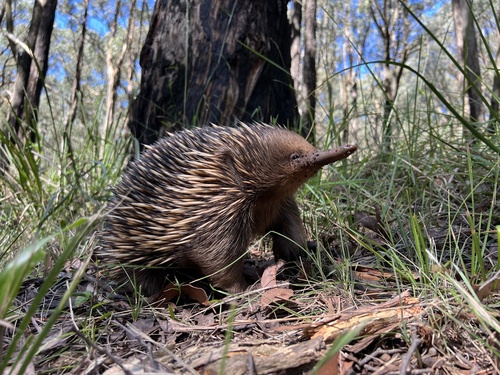
Short-beaked Echidna
The short-beaked echidna, a spiky marvel of Australia, burrows skillfully while munching ants with its long tongue. As one of the world's few egg-laying mammals, it enriches ecosystems by aerating soil and controlling insect populations. A truly remarkable creature of nature's design.
15-40 years
Lifespan
45389.0 kg
Weight
Length: 35 - 52 cm
Size
Brown, Black, White
Color
18 mph
Top Speed
Least Concern
Conservation Status
Stable
Population Trend
Characteristics
The Tachyglossus aculeatus, commonly known as the short-beaked echidna, inhabits Australia and New Guinea. This unique monotreme sports a spiky coat of quills, a long, sticky tongue for ant consumption, and lays eggs. It plays a vital role in soil aeration through its burrowing behavior.
Distribution Range of the Short-beaked Echidna
Tachyglossus aculeatus, commonly known as the short-beaked echidna, is native to Australia and New Guinea. It is widely distributed across the Australian mainland, Tasmania, and several offshore islands, including Kangaroo Island and Flinders Island. In New Guinea, it is found in the highlands and some coastal regions.
Short-beaked Echidna's Habitat
Environmental Conditions
The short-beaked echidna inhabits a diverse range of environments, including forests, woodlands, heathlands, and scrublands. It can also be found in arid regions, grasslands, and alpine areas. The species is highly adaptable to various climatic conditions, from temperate to arid climates.
Ecological Niche
Tachyglossus aculeatus primarily occupies an ecological niche as a specialized feeder on ants and termites. It uses its long, sticky tongue to capture prey. The species is a solitary forager, often found in areas with abundant leaf litter or loose soil, which allows it to burrow and search for food. Its ability to survive in a wide range of habitats is facilitated by its generalist foraging strategy and adaptability to different environmental conditions.
Copyright @ Nature Style Limited. All Rights Reserved.
 English
English